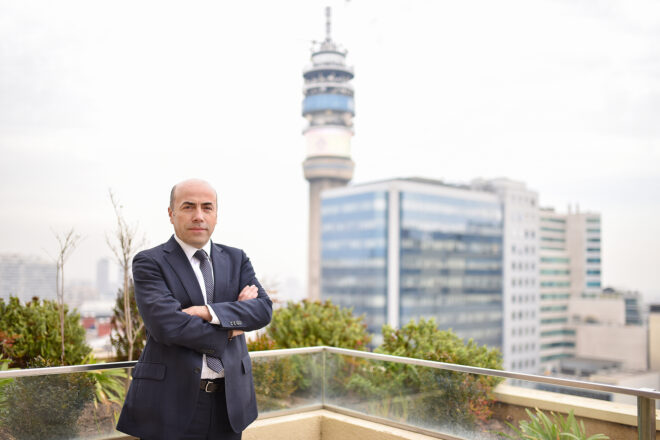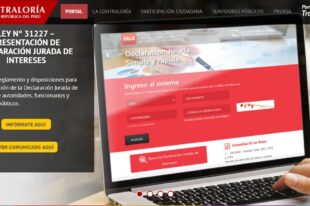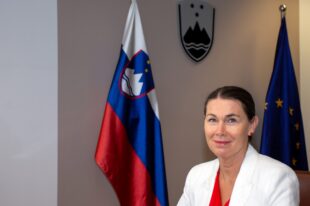Collective Action and Long-Term Strategies: Combating Corruption in a Post-Pandemic World

by Jorge Bermúdez Soto, Comptroller General of the Republic of Chile and General Secretary of the Organization of Latin American and Caribbean Supreme Audit Institutions
The COVID-19 pandemic has been a litmus test for Supreme Audit Institutions (SAIs). Across the globe, governments have generated sizable investments to provide health and social coverage. International organizations have quickly mobilized substantial funds to aid the neediest populations.
The crisis has produced a keen sense of urgency, which has enabled corrupt behavior—calling for SAIs to demonstrate value by generating independent information, strengthening public trust and intensifying anti-corruption efforts.
For the Office of the Comptroller General of the Republic of Chile, the nation’s SAI, this crisis has been accompanied by a particular national context. Citizen protests during the latter months of 2019 have given rise to an unprecedented constituent process, a social and political environment that allowed SAI Chile to reflect on its role and how it responds to citizen demands for improved democracy.
Results of this exercise were subsequently published in the book, “Dismantling Corruption: Ideas to Strengthen Probity in Chile,” which compiled main theoretical and institutional trends and included an analysis of citizen perceptions and attitudes toward the phenomenon of corruption. The study indicated 85% of those consulted believe “the Comptroller’s Office is the institution responsible for fighting corruption.” While this statement recognizes the SAI’s audit work, it also poses significant challenges: to work resolutely to meet the expectations of an increasingly demanding citizenry and continue researching methods to better detect and prevent corruption.
How can we respond to citizen demands to curb a phenomenon as dynamic and widespread as corruption? How can we control large financial flows with ever-tightening institutional budgets? To confront the new world context, SAIs will need to adopt more avant-garde and innovative positions.
Shifting from classic anti-corruption mechanisms based on isolated tools and reactive solutions to comprehensive and preventive initiatives that are grounded in a multi-systemic view of corruption is critical, and recognizing that integrity policies cannot come exclusively from the public sphere is a good starting point.
Linking state institutions with various stakeholders, as outlined in Sustainable Development Goal 17, is an indispensable element in devising efficient and effective policies aimed at strengthening integrity. Coordinated work between SAIs and academia, citizens, civil society organizations, and the private sector can provide new and better responses to combat corruption.
Following this paradigm, the Comptroller General’s Office leads, encourages and supports continued participation in the United Nations Convention Against Corruption (UNCAC) Anti-Corruption Alliance–Chile, an unprecedented initiative bringing together more than 30 institutions from the public, private and civil society sectors committed to promoting anti-corruption initiatives.
This collective action has been recognized internationally for its contribution to strengthening integrity beyond the state sector.
In addition to amplified collaboration, global changes as a result of the pandemic are shaping a novel scenario requiring SAIs to use a combination of adaptability and innovation. In this sense, SAIs cannot be paralyzed by the dynamism of society. Rather, advancing longer-term approaches that define new ways to overcome the new challenges will be key.
In constructing its long-term integrity strategy, SAI Chile considered three crucial components: complexity, duality and uncertainty.
Corruption is constantly transforming—into more sophisticated and complex forms—and transcends the governmental sphere in which SAIs traditionally operate. This emphasizes the need to incorporate integrity measures in a dual manner (in both the administrative and political realms), which can help broaden and advance the prevention of integrity violations. Equally as important is the need to ensure anti-corruption efforts are clear and well-defined yet flexible, particularly given the uncertainties surrounding the social, political and economic environments.
Corruption is not a new problem. However, it has taken on new forms. The tools currently available to face these new manifestations, as well as the complex, uncertain scenarios created by the COVID-19 pandemic, articulate a context that requires rapid and efficient SAI responses.
SAIs will need to abandon partial solutions that address corruption exclusively through regulations and sanctions and turn to long-term anti-corruption strategies that, through collaborative initiatives, unite the public and private sectors, academia and civil society in the search for more diverse, more useful measures.
As independent, objective agencies, SAIs are well-positioned to help foster a collective commitment to fight corruption, strengthen democracy and add value and benefits to the lives of citizens.





